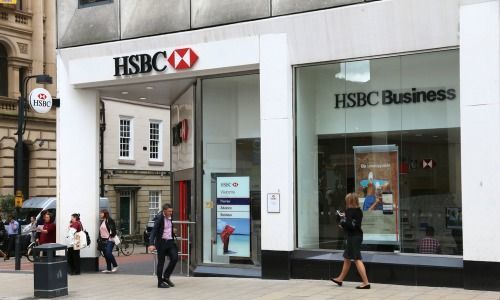HSBC Singapore Launches Green Deposit Account
HSBC Singapore offers its first green deposit account for corporate clients on Thursday, allowing them to embark on the sustainability path. These accounts will accept the Singdollar and U.S. dollar.
Corporate customers of HSBC in Singapore and the U.K. will have a way to support environmentally-friendly projects, as these two markets become the first that HSBC offers such products. Deposits will finance green initiatives such as renewable energy, energy efficiency, and biodiversity conservation.
«The green deposit account enables companies to directly apportion cash savings into projects which directly benefit the environment,» said David Koh, head of global liquidity and cash management in HSBC Singapore in a media statement. «Given that liquidity is critical for business operations, this is a simple and immediate solution for any corporate to begin or widen their sustainability strategy.»
Southeast-Asia Vulnerable
Standard Chartered has a similar product named sustainable deposit offering - a deposit product linked to sustainable development goals, which it launched in Singapore last year, among other markets.
The launch of such products comes as the need for investment in sustainable innovation and solutions becomes more urgent in South-east Asia, given the region's susceptibility to climate change, the increasing depletion of natural resources and the growing level of natural disasters, according to HSBC. The Asian Development Bank forecasted that if left unaddressed, climate change could shave 11 percent off South-east Asia's GDP by the end of the century.
Heated Discussions
Despite much talk and activities around ESG-linked financial products, many banks stand accused of not doing enough to combat climate change at the World Economic Forum in Davos on Tuesday. Leaders of some big banks and other financial companies have resisted calls that they should refuse to work with clients that are major polluters.
Mike Corbat, chief executive of Citibank, said it was not the role of banks to ensure that companies were adopting environmentally friendly business models by unilaterally cutting off finance for polluting businesses. «I don’t want to be the sharp end of the spear, meaning I don’t want to have to be the one telling (companies) or enforcing standards in an industry or business. A bank’s job is to support the communities in which it operates. It is not to dictate outcomes,» said Corbat, who was quoted in the «Financial Times»(behind paywall).
Multi-Decade Transition
Goldman Sachs' chief, whose firm recently worked on the initial public offering of oil company Saudi Aramco, said the bank would not «draw a line» by refusing to advise clients that are major polluters.
«If you’re looking for a line, there’s not a line. There’s a transition that’s going on, and my view is this is going to be a multi-decade transition where we see changes in the way people allocate capital,» said Goldman Sachs' chief executive David Solomon during a panel discussion.


























